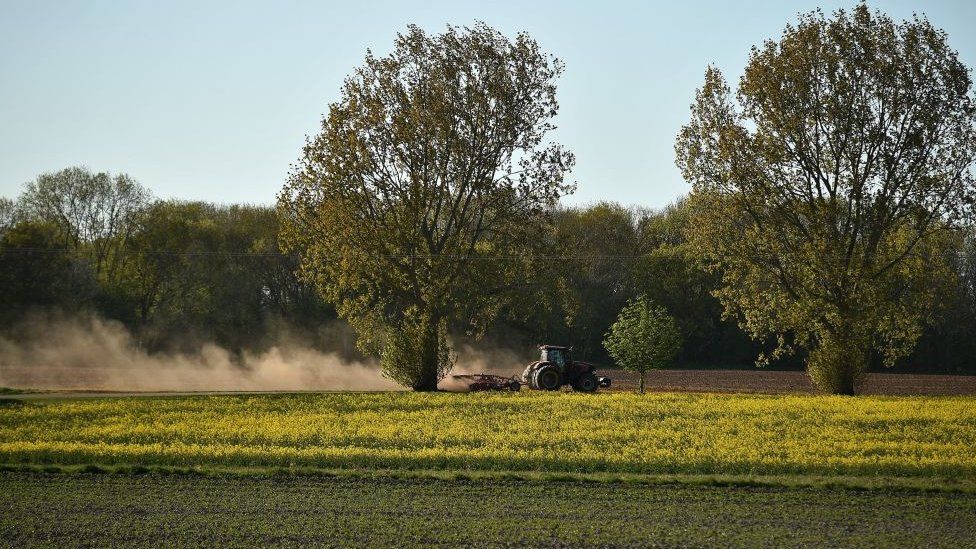
I had every intension of remaining more positive, but when it comes to ‘rewilding’, ‘net-zero emissions’, food security, traditional v intensive farming, and other topics which get me going, including ‘disloyalty’, I really cannot hold back.
Mr Halliday explains how his small family run farm in south-east Cornwall is abounding with wildlife. There are deer in his barley crop, fieldmice scampering in and out of the hedgerows, and beneath his feet the soil is teeming with earth worms and dung beetles – a sure sign of a healthy soil.
In the summer he hears the song of the skylark, and many other birds, some endangered, which thrive on his farm; a fine example of farming and nature working hand in hand, symbiosis at its best.
According to the latest message from George Eustice, agriculture is on a collision course with nature. Under the new ‘schemes’ announced at the Oxford Farming Conference, farmers will be paid to ‘make space for nature’, by replacing fields of crops and livestock with wildlife habitats, peat bogs, trees, wetlands and establishing new nature reserves.
Who wouldn’t want to see more wildlife and the rest? But this simplistic approach to the countryside, as Rob Halliday explains so eloquently, is potentially disastrous for farmers, consumers, and ironically, nature too.
It is not necessary for land to be taken out of agriculture. Do ministers really want more intensification? Mega factory farms popping up with dodgy welfare, and increased risk of infection due to overcrowding?
Do they want arable farmers using more fertilisers and chemicals, to boost productivity? And do they believe that the British Isles should become a playground allowing the public to roam freely disturbing the wildlife, and we rely upon imported food? Most of which is produced under lower welfare standards, poor worker’s rights, and certainly little consideration for the environment. In other words, “Just send the food, never mind its origins”. How ethical is that?
Farming, and nature can and do co-exist. One does not need to make way for the other. Farmers have nurtured their land for generations, working with the landscape, protecting the soil, caring for crops and livestock, ensuring the highest welfare standards, traceability, transparency, and protecting the countryside.
Digression from those aims has been driven by governments and the EU. They have exploited the countryside by paying farmers to squeeze production into every inch. Filling in ditches, ripping out hedges. Don’t blame the farmers, check the facts.
Our ‘green and pleasant land’, the tapestry of our beautiful landscape it due entirely to traditional farming, and hunting, shooting, and fishing. These activities add to the richness and management of the countryside and help to preserve that unique environment. The land produces grass fed beef and lamb, delicious pork from pigs which have been reared under the highest welfare standards, and dairy cattle now increasingly keeping their calves afoot until they are ready for weaning at four to five months, not taken away at 24 hours.
We are tired of being told by ‘experts’, that we should stop damaging our soil, don’t know what we are doing, and abusing livestock. No, we are not.
Ote Hall arable fields have not been ploughed for over 25 years. Our heavy Weald clay is full to bursting with worms and organic matter, which is no longer buried annually by the plough.
Soil and leaf samples are taken for analysis, and soil conditioners and trace elements applied. We ensure that nature’s nitrogen and other essentials are made available to the growing plants, through working with nature, not against it. ‘Note to Ministers – We get it, we are already well ahead, it is time for ‘expert environmentalists’ to catch up with all of us.

 RSS Feed
RSS Feed